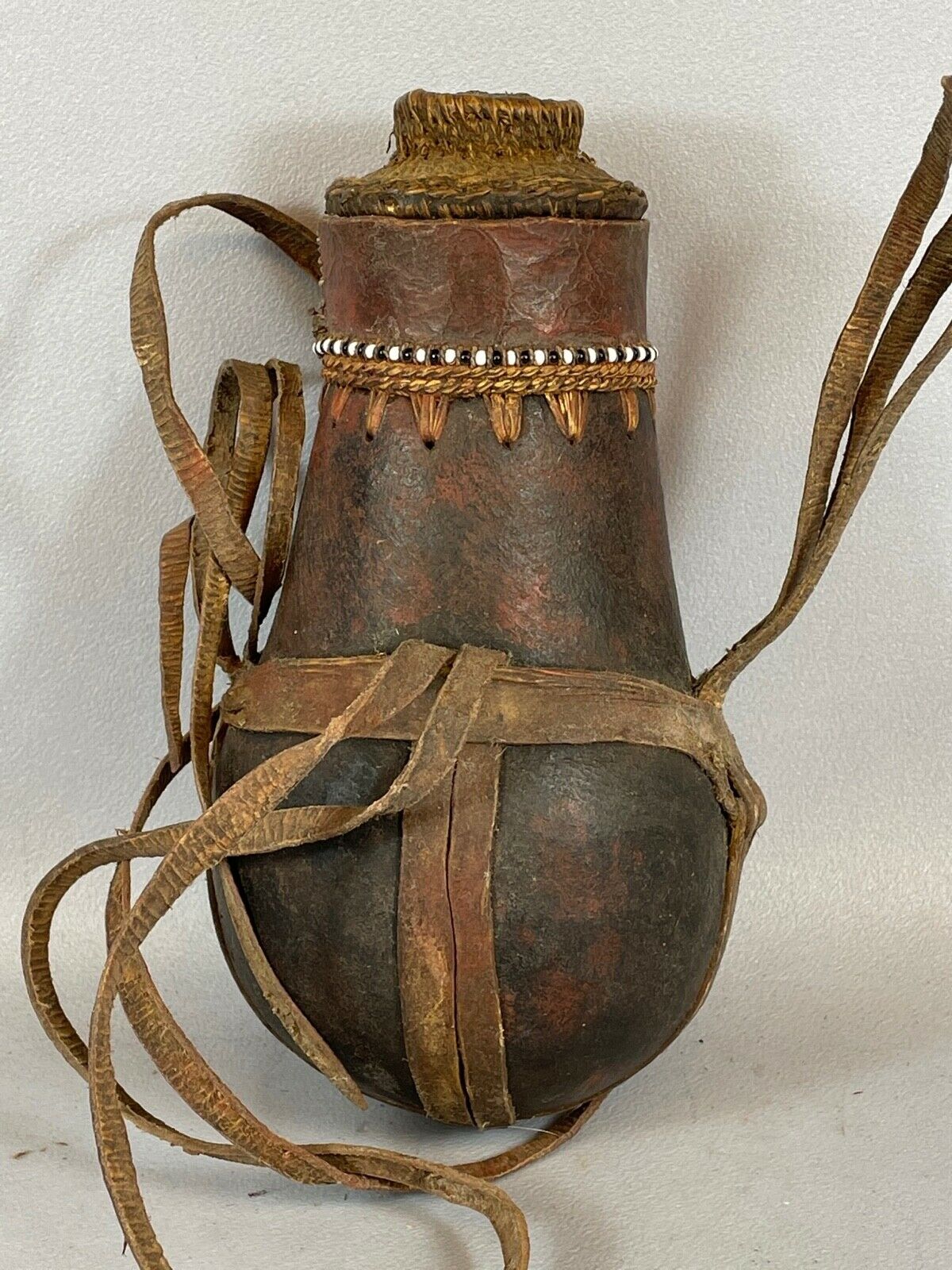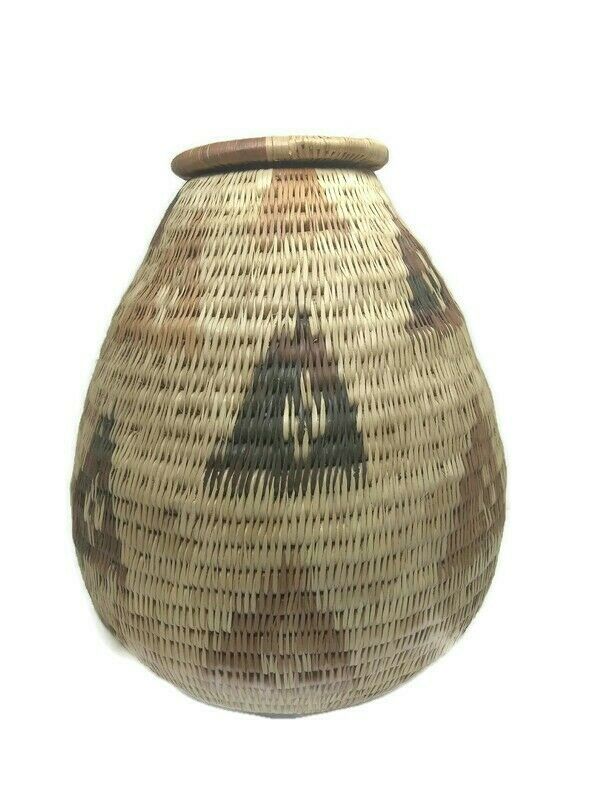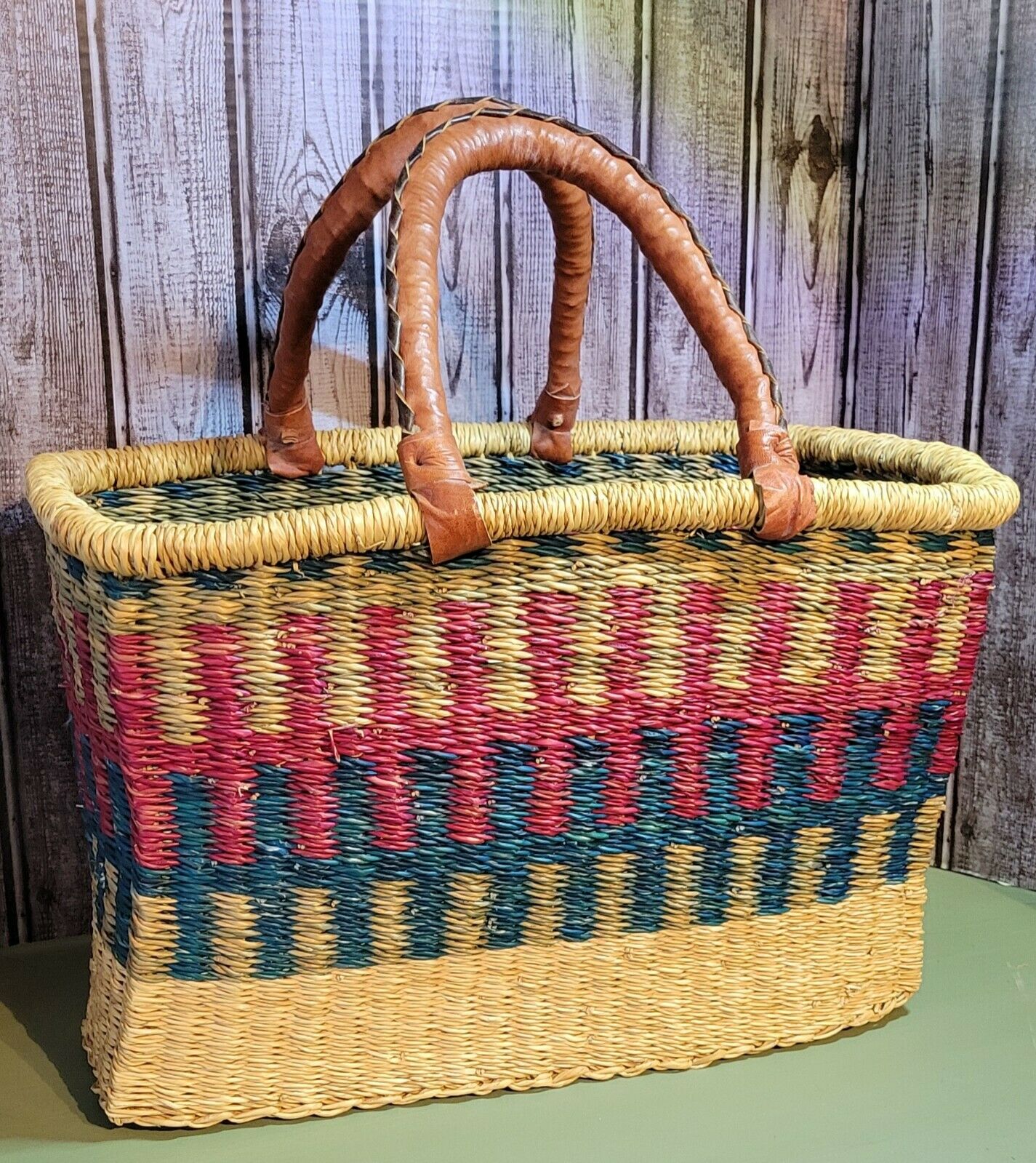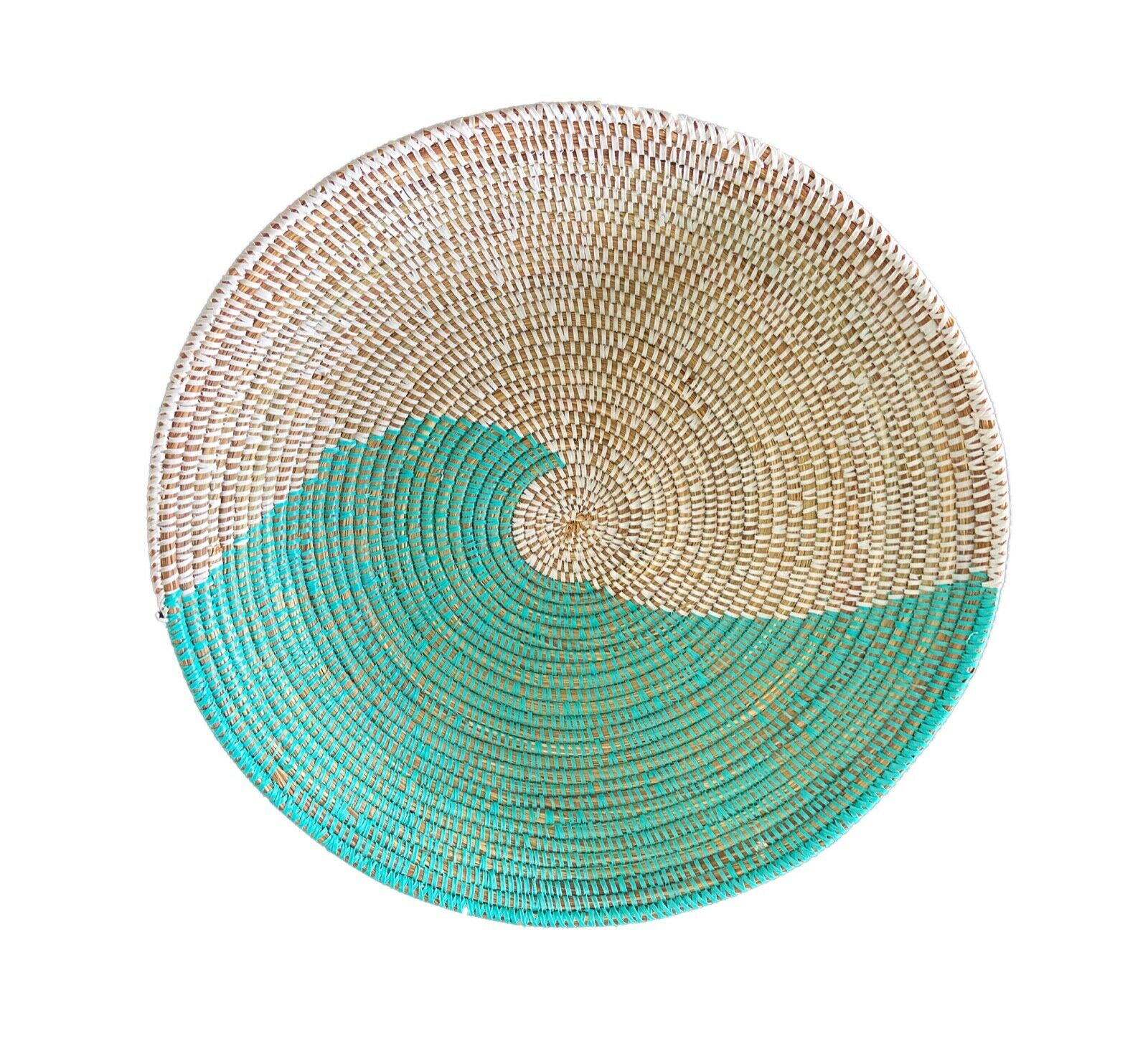-40%
210432 - Tribal used Old Ethiopian african Mursi jug - Ethiopia.
$ 63.35
- Description
- Size Guide
Description
Ethiopia: Tribal used Old Ethiopian african jug from the MursiSize: 21 cm high.
The Mursi tribe (sometimes called the Murzu tribe) are an African tribe from the isolated Debub Omo Zone in Southern Ethiopia near the border with Sudan. There are an estimated 10,000 people in the Mursi tribe and the Ethiopian government groups them together with the Suri and Me’en tribes and calls the collective group the Surma. However, the Mursi tribe reject the term Surma and refuse to identify themselves as Surma.
Unlike some other pastoralist African tribes, the Mursi are sedentary rather than nomadic. The language of the Mursi is in the Nilo-Saharan linguistic family rather than being in the Afro-Asiatic language family as is Amharic, the official Ethiopian language. Very few Mursi people speak Amharic and most are unable to read or write. Although a small percentage of the Mursi tribe are Christians, most still practice Animism, believing that plants, animals and some inanimate objects possess spirits. Mursi tribe girls and women wear lip plates in their lower lips similar to some Amazon tribes such as the Suya tribe from the Xingu River area in Brazil. However, in the Suya Amazon tribe it is the men that wear the lip plates, while with the Mursi African tribe, only the females wear the plates in their lips.
The Mursi girls pierce the bottom lips which are stretched so that a clay lip plate can be inserted. In addition, this African tribe removes the bottom teeth of the girls for esthetic enhancement. Currently the Mursi tribe is being displaced from their traditional lands that are in the Omo National Park. Ethiopian government officials have been actively evicting Mursi people from the Omo National Park without any compensation and burning down homes located within the boundaries of the park. The Mursi have a reputation for being one of the more aggressive African tribes and are famous for their stick fighting ceremony (“donga”) which is fought by the men of this naked African tribe. The winner of the “donga” will be able to select the girl of his choice to have relations with, even though she may marry someone else. Similar to the Hamer tribe, the Mursi tribe commonly drink a mixture of blood and milk as do other African tribes in the region.
A SUMMARY OF OUR AFRICA-GALLERY SELLING POLICIES
Payment
- PayPal preferred. For other payment methods please contact us before bidding.
Shipping
- We ship worldwide. We try and get shipments out as quickly as possible after payment, usually shipping four times weekly.
Combined shipping
- For buyers of multiple items please email us when done shopping for your combined invoice with reduced shipping fees. For urgent deliveries we can arrange courier shipments via DHL (additional charges incurred to be covered by the buyer).
Delivery
– Delivery to most destinations is anywhere between 2 to 8 business days inside Europe and 16 to 21 business days to the rest of the world, after receiving our email confirmation that the item has been shipped. Parcels shipped from the Netherlands are sent using the Post NL and the parcel status is traceable online.
Refunds & Returns
– We are aiming for your complete satisfaction. If for any reason you are not 100% satisfied with your purchase please return the item to us for a complete refund or exchange. No hassles, no questions asked. Refunds will be issued via PayPal or by Bank only. The shipping cost are not refund.
Please Contact Us
– For any questions, concerns, or clarifications before bidding on or purchasing an item. We are usually able to respond within 24 hours. To avoid spam filters please establish initial contact through the eBay messaging system.
Thank you,
Gijs van Kuijk.














